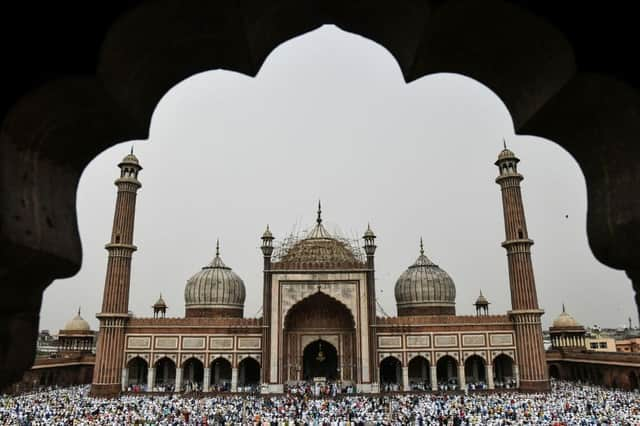This is when Ramadan will begin in 2021 - and the history of the fasting period


Ramadan, the Muslim month of fasting, prayer, reflection and community before Eid, is coming up in April this year.
So, when is Ramadan this year, what are the prayer timings, and what type of worship is allowed as the Covid pandemic continues?
Here’s what you need to know.
What is the history of Ramadan?
Advertisement
Hide AdAdvertisement
Hide AdRamadan marks the month when the Quran is said to have been revealed to Prophet Muhammad by God.
Throughout Ramadan, Muslims spend 30 days abstaining from all food and fluids, during daylight hours. No water is allowed to be consumed during this time either.
This allows Muslims to reflect on their faith, without distractions.
Fasting (sawm) is one of the five pillars of Islam – the fundamental rules that all Muslims follow – along with the Shahadah (declaration of faith), Salat (prayer), Zakat (charity) and the Hajj pilgrimage.
Advertisement
Hide AdThroughout Ramadan, Muslims give thanks to Allah through prayer and long periods of fasting allows them to understand the suffering of others.
Advertisement
Hide AdMuslims observing the fast are encouraged to read the Quran and this is also recited at the Tarawih, special nightly prayers that are held throughout the month.
When is Ramadan in 2021?
This year, Ramadan will begin on the evening of Monday 12 April, and will end on the evening of Monday 12 May.
The Islamic calendar is based on the cycle of the moon, meaning the date Ramadan falls on varies from year to year.
Advertisement
Hide AdRamadan lasts between 29 and 30 days, depending on the lunar cycle - and is always the ninth month in the Islamic calendar.
Muslims holidays shift slightly every year due to their observance of the lunar calendar – meaning celebrations fall around 11 days earlier each year.
Advertisement
Hide AdThe beginning of the celebrations depends on the first sighting of a crescent moon following the new moon, therefore the exact date of celebrations is uncertain until that happens.
Key dates throughout the month of Ramadan include:
Monday, 12 April – Ramadan starts at sunset
Tuesday, 13 April – Sawm, the first full day of fasting
Saturday, 9 May – The Night of Power
Tuesday, 11 May – Last day of Ramadan
Wednesday, 12 May – the festival of Eid al-Fitr start date
Who takes part in fasting?
All practising Muslims who have reached puberty are expected to fast during Ramadan.
Advertisement
Hide AdHowever, there are some exceptions, including menstruating or pregnant women and people who are sick or have an illness.
The strict rules include abstinence from food and drink, including water, during daylight hours for the entire month. Smoking, sex and masturbation are also prohibited.
The fasting period begins and ends at different times each day, as the period between sunrise and sunset grows as Ramadan progresses.
Advertisement
Hide AdThe day's abstinence is offset by a pre-dawn meal called sehri and a nightly meal known as iftar.
Advertisement
Hide AdAt sunset, ‘Adhan’ - the prayer which signifies the end of the fast - is read and then worshippers traditionally eat dates with juice, milk or water to break their fast.
Families will usually come together at sunset, to enjoy the meal of Iftar.
Ramadan is expected to draw to a close on 12 May this year, this is when the celebration of Eid-al-Fitr is held.
What happens at Eid?
After Ramadan comes to an end, Muslims observe Eid al-Fitr.
Eid al-Fitr is also called the ‘Festival of Breaking the Fast’, and is celebrated with lights, decorations and gifts, with worshippers often dressing up in bright colours and decorating their homes.
Advertisement
Hide AdAdvertisement
Hide AdThis year, Eid al-Fitr will begin on the evening Wednesday, May 12 and end on May 13.
Will Mosques be open for prayer during Ramadan 2021?
In 2020, mosques were forced to close to the public during Ramadan due to coronavirus restrictions.
Therefore, it will be welcome news that Muslims in England will be able to attend their local mosque to participate in prayers, as long as they adhere to rules like remaining two meters away from each other, and not sharing items like religious books or prayer mats.
The government in Wales, however, has asked religious leaders to find alternative ways of worshipping, like video gatherings.
Advertisement
Hide AdScottish Mosques can also reopen for socially distanced prayer from 26 March.
However, Eid will look considerably different than usual again this year as no part of the UK will have reintroduced indoor private gatherings by 12 May.